Learning
10 Must Books to Read to Become a Stronger Person

10 Must Books to Read to Become a Stronger Person
In Everything Is Figureoutable, Marie Forleo provides the ultimate shortcut to taking charge of our lives and transforming it, revealing the single most important belief to cultivate when it comes to creating our own success.
By shifting our perspective and understanding that everything in life can be figured out — that is, if we want it to be — we step into our power and begin taking responsibility for our own journey.
Limitations, setbacks, and fears cannot stand in our way so long as we’re willing to take action, rebuilding the foundation of both our mindset and dream life.
Six top insights from the Everything Is Figureoutable summary
- Without the courage to alter ourselves, there will be no substantial change in the world. We must first believe in ourselves before we can change.
- Rewiring your brain and becoming aware of damaging and unhelpful ideas can help you accomplish goals in life. You can do so by converting negative ideas into useful inquiries.
- Nothing in our reality occurs without first being in our minds.
- Excuses are one of the most significant roadblocks we face. We tell ourselves tiny lies that restrict who we are and what we can achieve.
- Fear, like everything else, can be figured out. The adversary is not fear. It’s not worth it to wait until you’re no longer frightened.
- Engagement, not thought, produces clarity.
The Highly Sensitive Person
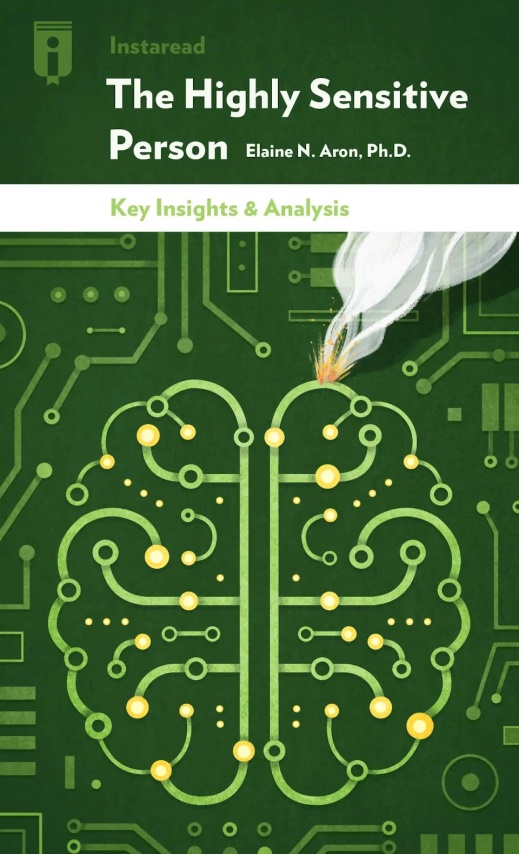
The Highly Sensitive Person: How To Thrive When The World Overwhelms You (2013) by Elaine N. Aron explores what it’s like to be a Highly Sensitive Person, or HSP, a personality type characterized primarily by heightened sensitivity to external stimuli.
Using case studies, research, and personal anecdotes, Aron, a self-proclaimed HSP, examines the positive and negative effects of being an HSP and offers guidance on how HSPs can better succeed in work, health, and relationships.
Six top insights from The Highly Sensitive Person summary
- HSPs are characterized primarily by intense sensitivity to external stimuli.
- Heightened sensitivity is inherited and deeply rooted within an individual’s nervous system.
- HSPs are not a homogenous group.
- HSPs are more likely to thrive professionally when pursuing a vocation rather than a typical job.
- HSPs are generally more prone to romantic love and tend to fall in love more intensely, which can lead to relationship imbalances.
- Psychotherapy, and Jungian analysis, in particular, are beneficial for HSPs.
Girl, Wash Your Face

Girl, Wash Your Face: Stop Believing the Lies About Who You Are So You Can Become Who You Were Meant to Be (2018) by Rachel Hollis is an inspirational self-help book that mainly targets Christian women. Hollis uses painful and funny stories about her own life to urge women to dispel negativity and make the most of their lives.
Six top insights from the Girl, Wash Your Face summary
- Women have been socialized to believe many destructive lies about themselves, and these keep them from realizing their goals and living happy, fulfilled lives.
- Every woman has the power to confront all of life’s difficulties and create the life she wants.
- Women should fiercely pursue their dreams.
- Self-care is important to creating a sustainable, enjoyable life.
- Women should expect their male partners to respect them.
- Women and their long-term partners should strive to keep sex interesting in order to keep their sex life alive.
The Gift of Fear
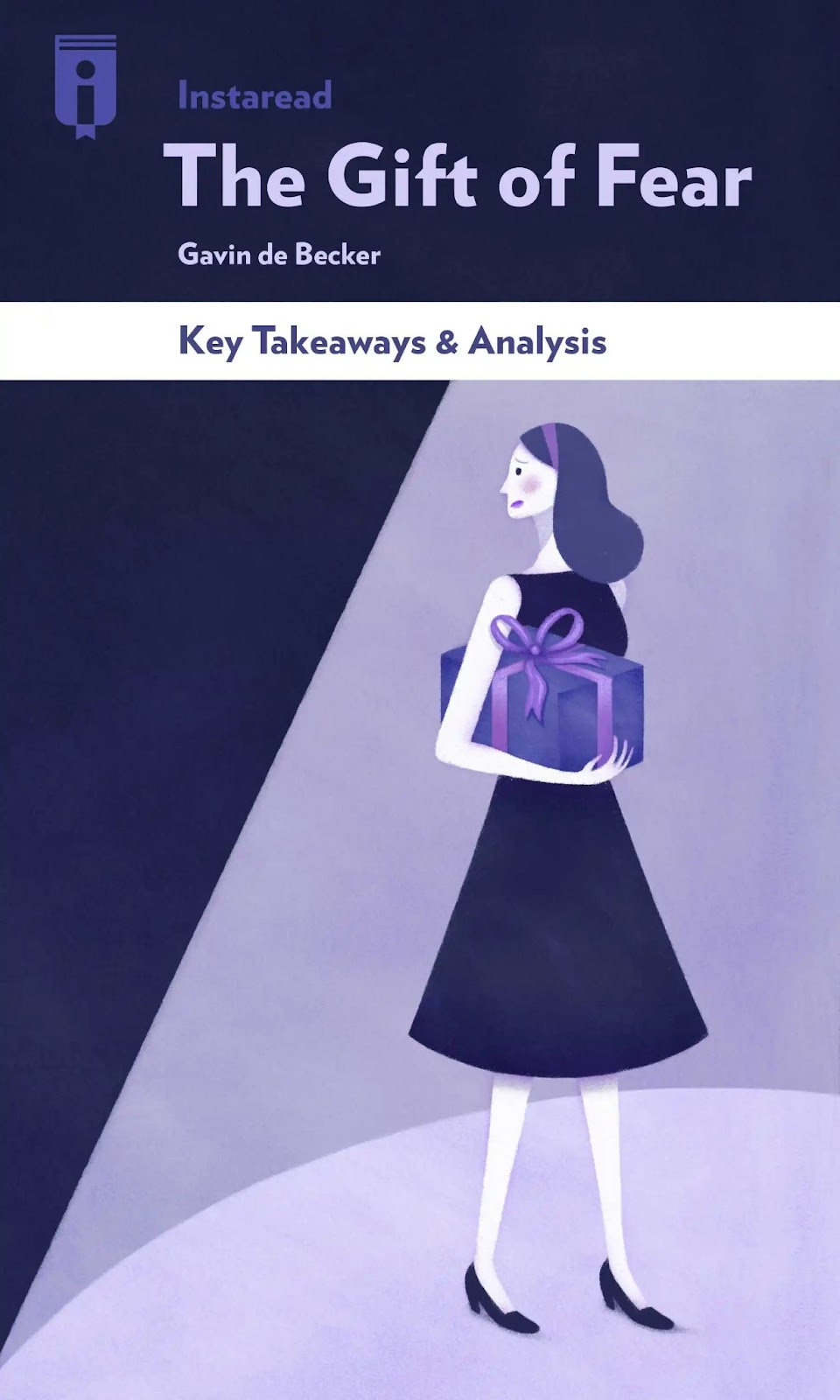
The Gift of Fear by Gavin de Becker is a self-help book about assessing potential violence and staying safe across a range of environments. After violent episodes, observers often will remark that they didn’t think the offender was capable of committing a criminal act, such as stalking, domestic abuse, or even assassination.
Yet the perpetrator always sends out warning signals that precede violence, which is often noticeable in retrospect. These signals register at the moment, but often people ignore their intuition or choose to discredit it with logic.
By trusting intuition and remaining aware of these predictors of violent behavior, people can take steps to limit potential threats in every context and situation.
Six top insights from The Gift of Fear summary
- The real fear is different from needless worry. Knowing the difference between the two can increase personal safety and a sense of overall security.
- Many people don’t pay attention to their gut instincts because they are conditioned to ignore clear signals that something is wrong.
- Intuition is always at work whether or not people realize it in the moment.
- When assessing a situation, look out for “satellites,” which are throwaway details that contain valuable information.
- To maintain safety, it’s important to understand alarming situations from the standpoint of the potentially dangerous person. Everyone is capable of violence.
- People who have suffered abuse and neglect in childhood are far more likely to become perpetrators themselves.
The 5 Second Rule
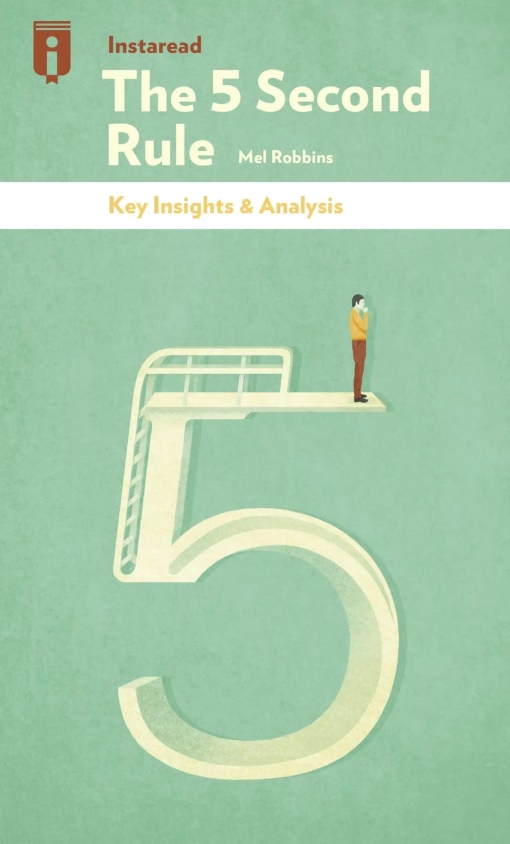
The 5 Second Rule (2017) by Mel Robbins explains how to overcome self-doubt and live a more fulfilling life by using a simple tool known as the 5 Second Rule. This tool helps people learn to take action in any situation and change their lives for the better.
Practicing the rule breaks crippling, destructive habits and builds confidence. Offering examples from the fields of neuroscience and developmental psychology, Robbins demonstrates how the 5 Second Rule is grounded in science and shares many stories of people who have benefited from it.
Six key insights from The 5 Second Rule summary
- The 5 Second Rule is a tool that engages the prefrontal cortex of the brain. It builds confidence by pushing people to change specific behaviors or initiate action.
- The human brain uses various methods to stop a person from making a change because action involves doing things that are different, unpredictable, or frightening.
- The 5 Second Rule changes behavior almost immediately by demanding action. Changing behaviors builds confidence.
- The 5 Second Rule is a powerful tool to fight against procrastination.
- Thinking about making good health decisions is never enough. It is important to be assertive and make changes.
- Worry is a habit ingrained in childhood. Learning to break the habit of worrying by using the 5 Second Rule promotes positive thinking.
Outwitting the Devil
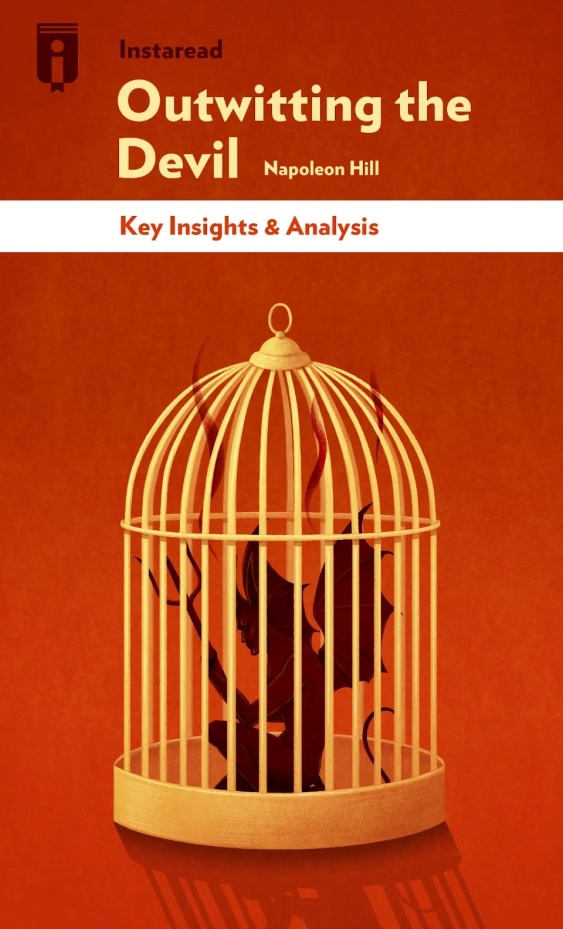
Outwitting the Devil: The Secret to Freedom and Success (2011) by Napoleon Hill describes the circumstances surrounding the self-help author’s rise to fame and fortune.
After overcoming many personal and professional trials, including financial ruin, Hill had the opportunity to question the Devil about the ways in which he ensnares humanity. Too controversial to be released in its own time, the book sat untouched for more than 70 years before it was finally published.
Six top insights from the Outwitting the Devil Summary:
- Positive thoughts make positive things happen in real life. Conversely, negative thoughts attract negative life circumstances.
- Every failure is a learning opportunity.
- Institutions like churches and schools are failing the people they are supposed to serve.
- It’s important to recognize financial insolvency as a temporary challenge, not a permanent form of failure.
- Fear is a destructive mindset that should be rejected.
- Empty, idle minds are most vulnerable to the Devil’s influence.
The Energy Bus
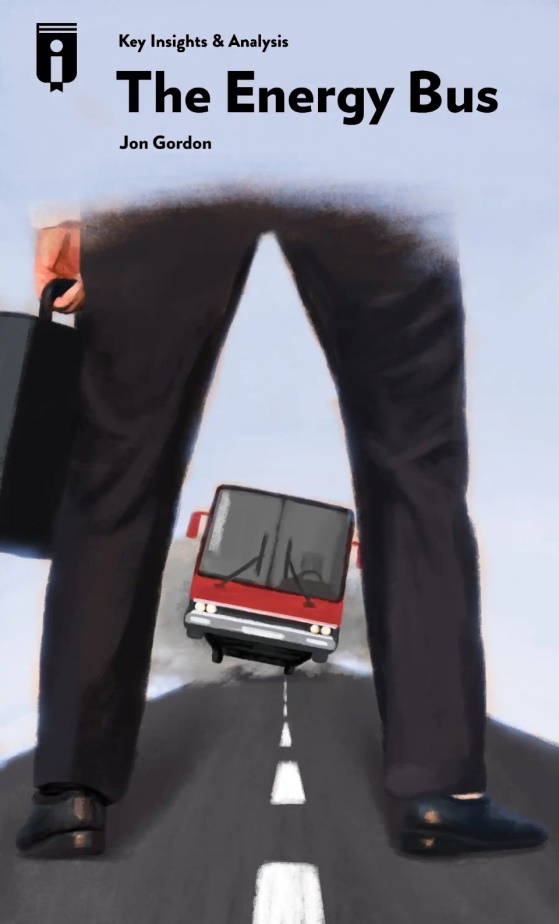
The Energy Bus: 10 Rules to Fuel Your Life, Work, and Team with Positive Energy (2007) by Jon Gordon is an allegorical tale that teaches readers to cultivate an optimistic attitude for increased personal and professional fulfillment.
The book focuses on the fictional story of a miserable worker named George whose pessimism has nearly cost him both his job and his marriage. When George is forced to take the bus to work for two weeks, he meets a charismatic driver, Joy, who teaches him 10 rules for better living.
Each rule offers readers a way to take control of their emotional energy, and thus attract individuals who can help them meet their goals.
Six top insights from The Energy Bus summary:
1. Focusing on a goal every day can help people achieve their ambitions.
2. Developing a positive attitude can provide the energy necessary to achieve a given goal.
3. To succeed, leaders must invite others to partner with them in their efforts.
4. Leaders do not allow negative attitudes or team members to derail their efforts.
5. Positive attitudes attract new talented workers and motivate existing employees to do their best.
6. To retain their trust and loyalty, leaders must show genuine love and concern for their employees.
Rising Strong
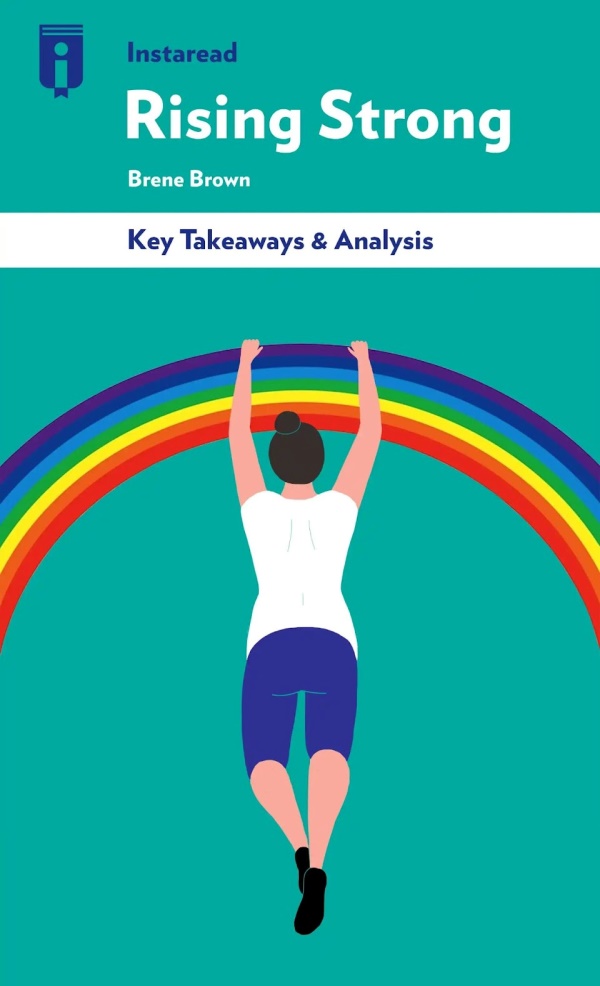
Rising Strong: The Reckoning, the Rumble, the Revolution by Brené Brown is a self-help book about the importance of people getting back up after they have fallen – and how they can bounce back. Brown has a specific approach to bouncing back that, if followed, will make those who rise again stronger than they were before they stumbled.
Six key insights from the Rising Strong summary:
- Everyone falls. People need to learn to rise again in a way that transforms them into more wholehearted people.
- Reckoning, which is the first step in rising from a fall, is recognizing the emotion connected with the fall, then trying to understand what the emotion means.
- The Rumble, which is the second step, is examining the first story the person told themselves about why they fell and, if they made up the story, seeking the truth.
- The Revolution, which is the third step, is arriving at the real story about why the person fell, and using the story to help achieve a better connection with the world and more wholehearted life.
- A person should be generous toward others they initially might want to blame for their fall, believing they are doing the best they can with their life.
- It is important to understand that a range of emotions may get in the way of arriving at the truth about a fall. Acknowledging and managing these emotions makes it easier to get to the truth.
The Road Less Traveled
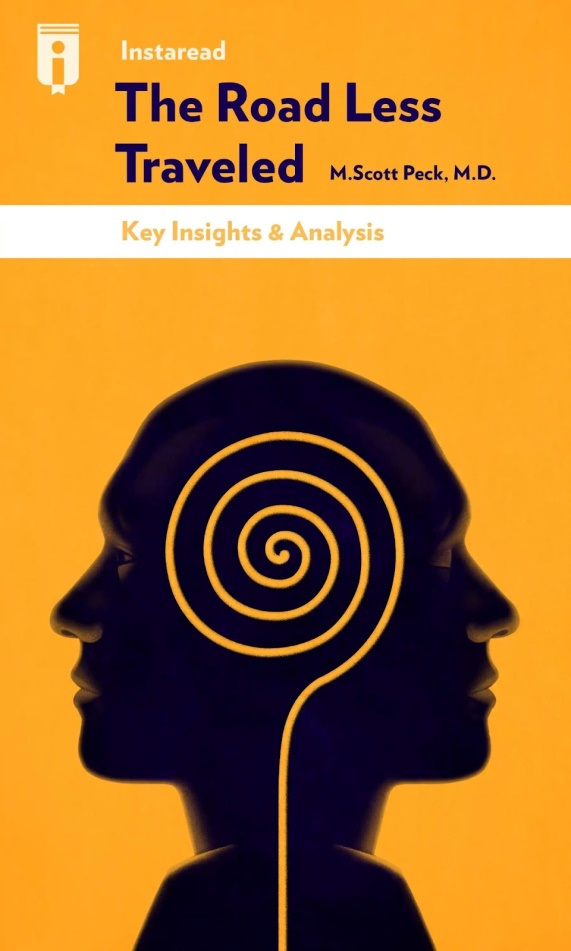
The Road Less Traveled: A New Psychology of Love, Traditional Values, and Spiritual Growth (1978) by M. Scott Peck is a self-help book that focuses on personal development.
Peck, who was a psychiatrist with many years of clinical practice, draws on the psychoanalytic tradition to explore four major concepts: discipline, love, religion, and grace.
These four concepts are critical to spiritual growth, which is the process of cultivating more loving relationships, finding emotional fulfillment, attaining personal satisfaction, and living joyfully.
Six top insights from The Road Less Traveled summary:
- Most people avoid the hard work that is required for spiritual growth. They become stuck in patterns that aren’t optimal for good mental health.
- The pursuit of spiritual growth through psychotherapy, like life itself, is challenging and arduous.
- To lead a fulfilling life, it’s important to accept personal responsibility instead of casting blame on external factors.
- Childhood hugely influences one’s adult life; this is especially true of parental figures. Often the work of spiritual growth involves processing a latent problem from childhood.
- To love someone is to promote their spiritual growth while maintaining personal boundaries.
- Love is a prerequisite for true spiritual growth.
Maps of Meaning

Have you ever wondered what’s the meaning of… meaning? What does it mean to “mean” something, and how did humans develop the concept of meaning and assigned one to everything they deemed important? If so, this book is for you.
Written by Jordan Peterson, a well-known psychologist, and philosopher, Maps of Meaning (1999) aims to explain how our brains developed into being able to make meaning out of the natural and abstract world surrounding them.
Six key insights from the Maps of Meaning summary:
- Most people believe we live in a purely objective world, governed by science and matter, but this is not the truth. The world we live in is both objective and spiritual.
- We often overlook the spiritual aspect or fail to acknowledge it completely, because it is impossible to talk about spiritualism in a scientific context. The fact that spiritual reality cannot be quantifiable leads many to believe that it’s simply not there.
- Words are not merely a descriptive label that we put onto things, but rather can be seen as tools that help us achieve a certain goal. These goals can be practical and material, or more general and conceptual.
- It could be that we humans have evolved to put more importance into the significance of things rather than the things themselves so that the significance or meaning of something takes on a more “real” aspect than the thing itself.
- Consciousness can be defined by mediation between the natural and the abstract, the known and the unknown. Consciousness is a faculty that transforms the new into the familiar, and could even turn it into wisdom. It’s able to function thanks to language.
- Myth plays a crucial role in human existence. Contrary to common perception, religion, ritual, mythology, and drama are not primitive forms of knowledge employed for lack of objective science, but rather elaborate tools we have constructed in order to imbue meaning into our lives.
To read all the insights from these books, please visit Instaread.
With Instaread you can instantly unlock the knowledge contained in the world’s best books and enjoy access to bestselling book summaries in 15-minute audio or text.
Related CTN News:
Top 3 Reasons to Hire an Accident Claims Lawyer
The Personal Injury Guide: Common Causes of Medical Negligence Cases
Understand the Top 3 Roles of Child Custody Lawyer






























